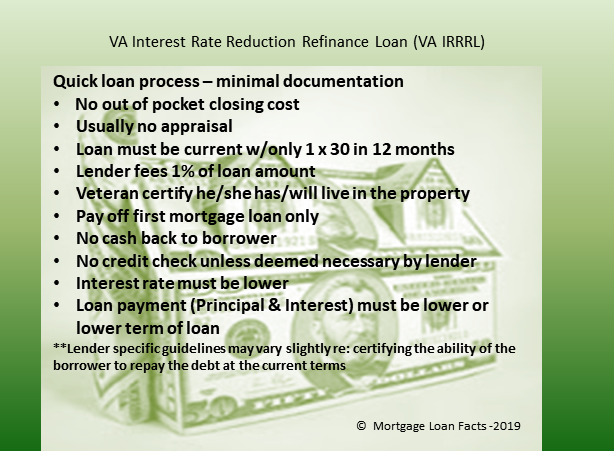Taxes and Insurance must be paid by the borrower for a “Home Equity Conversion Mortgage” (HECM) or Reverse Mortgage…no exceptions.
Basic FHA Home Equity Conversion Mortgage – Reverse Mortgage Guidelines *update 03/15/2018
- Age for getting a Reverse Mortgage is 62 or older
- The applicant should own their home fully, or have a small balance remaining that must be paid off at closing.
- The property must be the applicant’s owner-occupied, primary residence
- No federal debt delinquency
- The applicant must have financial ability to maintain the ongoing property charges such as property insurance, taxes, and Homeowners Association fees (if applicable) (Added) 3/18/2018- Condo fees, PUD fees, other assessments must be paid directly by the borrower.
- The homeowner must comply with a consumer information session given by HUD- who is an approved HECM counselor
- The amount of perspective loan equity will depend upon the age of the youngest borrower, the interest rate, and loan fees.
- The value will depend upon the lesser of the appraised value or FHA’s mortgage limit for the area.
Property Guidelines
- Single-family home or 2-4 unit home with one unit occupied by the borrower
- HUD-approved condo project unit, and PUD property
- Manufactured home that meets FHA guidelines (See the full guidelines for this here).
Assets/Financial Guidelines
- Income, assets, living expenses, and credit history will be verified
- Payments of real estate taxes, hazard insurance, and flood insurance (if applicable) will be verified for having been paid on time
How Mortgage Amount is Based
- The amount that can be borrowed will depend on, Age of the youngest borrower or non-borrowing eligible spouse
- The current interest rate
- The lesser of the appraised value or the HECM FHA mortgage limit of the state where the home is, or sale price
Cost of The HECM
- Mortgage Insurance Premium * can be financed
- Third-Party Charges *appraisal, title search/insurance, etc.
- Origination Fee
- Servicing Fee
When Does The Home Equity Conversion Mortgage Become Due
- These HECM mortgages are generally due and payable when the last mortgagor (s) dies, or it will be due when the last surviving borrower moves out of the home.
- As stated above, one of the main provisions of the HECM is that the applicants occupy the home as a principal residence.
- It is a requirement that an occupancy statement is sent to the mortgagee each year.
- If you do not occupy the property for 12 months, for medical issues, or you are away from your home for the major part of the year for non-medical reasons, the home may not be considered your primary residence.
- Your spouse or co-borrower can live in the home and the loan will not become due and payable, even if you move out or if you are deceased.
You will need to get all the specifics of each of the above fees from the lender. There are guidelines they must follow for FHA Reverse Mortgage. FHA does not make these loans, they insurance these loans. The lenders make the loans and disburse the money.
The above are basic guidelines only, and you should have a detailed list from your lender of all requirements, fees, and any cost that will be added in the mortgage amount.
The Original Post dated 01-2011
***FHA – The Federal Housing Administration made an announcement back in 2011 of new instructions and guidelines for lenders and borrowers to follow for those loans which are designated as Reverse Mortgage or Home Equity Conversion Mortgage.
These mortgages are loans to assist senior citizens who have sufficient equity, or no mortgage loan at all, to finance their home for a portion of their equity in their home without having a mortgage payment. It appears from this announcement, that some senior citizens have not paid their taxes and insurance on their homes, thinking, it was included in the process of making the mortgage loan.
The lenders are having now to deal with these unpaid taxes and insurance by paying them so that they will avoid foreclosure.
As these items are mandatory for owning a home regardless of whether there is a mortgage payment or not, FHA is making some clear instructions for the lenders to make sure the Reverse Mortgage borrowers understand that if they cannot pay the hazard insurance and taxes; their home can still go into foreclosure. Lenders cannot pay these items on a continued basis or indefinitely, and not be reimbursed for these funds that have accumulated.
HUD regulations have allowed lenders to make tax and insurance payments on behalf of the elderly clients from the borrower’s available mortgage funds. However, once those funds have been depleted; the lender must advance funds to pay these normally escrowed items to protect FHA’s interest and then be reimbursed from the homeowner. The homeowners have failed to understand this part of the reverse mortgage guidelines and regulations.
It appears now that in some cases these unpaid funds have become a tremendous burden and have grown to a measure that could put the FHA Insurance Fund at risk. The lender cannot pay these funds nor can FHA’s insurance cover this for an undetermined period. This being the homeowner’s responsibility, they must make efforts to repay these funds, and if this debt is not cleared with the lender/FHA, the lender has no other choice. This can result in foreclosure proceedings as these unpaid funds are out of compliance with the mortgage loan requirements and therefore HUD considers this a delinquent mortgage.
With this new problem, FHA has now implemented measures to alleviate this problem in the future by setting aside nearly 3M to housing counseling agencies. These housing counselors will also begin educating those who have become delinquent borrowers by not understanding that hazard insurance and taxes must be paid and at some point, in some cases by them; the borrower. They will be offered a repayment plan and given time to clear up the deficiency.
The lenders will send out letters to those who are in a delinquent status and explain the details of recovering from their current non-paid status.
References:




Here you will find a wide variety of useful information and resources designed to help you buy or sell a home more effectively. From information on the local community, to advice about finding a mortgage or preparing your home to sell, it's all available on this site.
Rohit;
Thank you for stopping by to read and comment.
This massage is really nice .I like your blog because is very help full for
me and other peoples.thank you for provide the good sharing all the world peoples.
Thank you Lisha for stopping by to read and leave such a nice compliment.
I love trying to help people get the attention they deserve.
many many thanks for the information you help a lot of people through this blog
thank you real estate agents for stopping to read. I really try.
Thank you for visit in this site…..
Thank you for stopping by.
A very great article you wrote it mate. I found some blogs whose content is good. And I think you are doing a great job. Continue your work. This message was really a beautiful piece of your work.
Yes, you have gathered useful information, which is effective for the people who are interested to buy a home or sell a home. Definitely, the different policy of FHA is interesting and attractive.
Regards,
Texas Mortgage Lenders
Is this just an alternative to home foreclosure? If so, this is a great idea for home buyers that are at risk in losing their homes.
No, Title Loans this was not intended as a alternative to foreclosure. This is for those borrowers 62 or older who have equity or own their home independently of a mortgage. This program was made for the older Americans who have insufficient retirement funds and need the money to live adequately. The must continue to pay taxes and insurance on the dwelling and the home is owned by the mortgage company or investor once the applicant dies. This would be good for any person who does not have family to leave the home to but some people would never want to give the home up.
Now, if someone could not afford to stay in the home, I suppose if they met all of the criteria with sufficient equity, age and etc., it might be possible. I have not heard of this occurring. Usually people wind up having a deficit which eats up the equity if they did not work on this option and could, before they are very delinquent.
Texas Mortgage Loans, thank you for stopping by to read and comment. I appreciate it.
Even I have heard about the new FHA guidelines but you have briefed us a little further in this regard. Excellent work keep sharing more such information.
Mortgage Nashville
Kevin, Thank you so much….when I was in mortgage lending I worked mostly in Memphis and traveled occasionally to Nashville.
Again, thanks for stopping by to read and comment.
Hi ! This is attractive and informative for us. I was searching this type information such a long time. Now i found such a good blog. Mortgage in Houston
Thank you so much.
Mortgage loans generally refer to a loan secured by residential property, often for the purpose of acquiring the residence. Mortgage loans may be lower priced than other forms of borrowing because the value of the property reduces risk for the lender.
free reverse mortgage calculator
there are so many myths out there – seniors need to really do their research to find a reputable third party company who can help them select the best reverse mortgage and even while reviewing the benefits/cons of the program
hud reverse mortgage
Reverse mortgage have been a great help for the senior citizens for quite a long time now. It is a great source of income for the senior citizens when they are unable to earn for themselves.
Golden Reverse Mortgage Facts